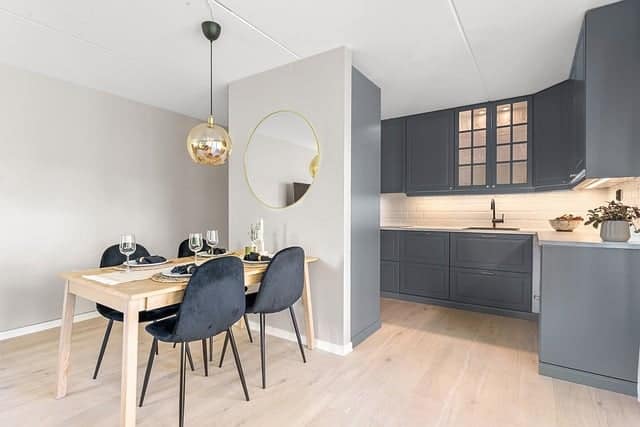Exploring the Many Type of Ceiling Tile
Table of Contents
A ceiling tile system plays a crucial role in defining the style and functionality of interior spaces. Often overlooked, these versatile components and different types of ceilings contribute to the overall design, acoustics, and insulation of a room. In this guide, we will delve into the diverse world of styles of ceiling tiles, exploring their types, different materials, and applications.
Mineral Fibers Ceiling Tile

Mineral fibers ceiling tiles have gained a significant foothold in the construction industry due to their exceptional properties and aesthetic appeal. These tiles are made from mineral wool, perlite, and other natural minerals, making them an environmentally friendly option for indoor spaces. The unique composition of mineral fibers not only provides excellent acoustic insulation but also offers fire resistance, making them a safe choice for commercial and residential applications. Additionally, the lightweight nature of these tiles makes installation quick and easy, reducing labor costs and minimizing disruption during renovations.
One interesting aspect of mineral fiber ceiling tiles is their versatility in design. These tiles come in a variety of styles, textures, and colors, allowing architects and designers to unleash their creativity while enhancing the overall space. The thermal insulating properties of mineral fibers contribute to energy efficiency by helping maintain optimal indoor temperatures without overreliance on heating or cooling systems.
It’s worth noting that mineral fiber ceiling tiles are an affordable yet high-quality option for improving indoor air quality. These materials are inherently mold-resistant and do not emit harmful volatile organic compounds (VOCs), contributing to healthier indoor environments. As sustainability becomes increasingly important in construction practices, the use of mineral fiber ceiling tiles aligns with eco-conscious trends by offering durability and recyclability – a win-win for both builders and environmental enthusiasts alike.
Material: Composed of mineral wool, perlite, and starch.
Features: Excellent sound absorption, also additional benefits of fire resistance, and thermal insulation.
Applications: Ideal and popular choice for industrial applications, commercial ceilings and spaces, offices, and areas with high acoustic requirements and different levels of sound protection..
Metal Ceiling Tiles
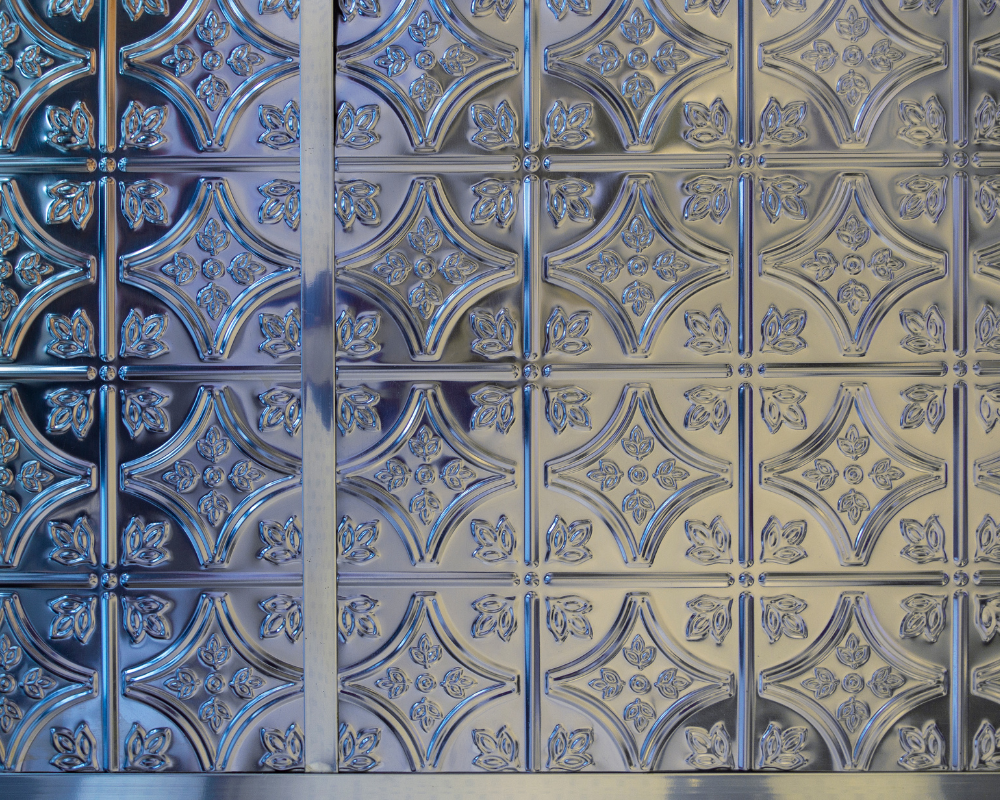
Gone are the days of boring, plain ceilings. Metal ceiling tiles have revolutionized interior design, adding a touch of elegance and sophistication to any space. These decorative tiles come in a variety of finishes and styles, making them suitable for both traditional and contemporary settings.
One of the most appealing aspects of metal ceiling tiles is their durability. Unlike traditional ceiling materials, such as drywall or plaster, metal tiles are resistant to moisture, mold, and mildew. This makes them an ideal choice for kitchens and bathrooms where humidity levels tend to be higher.
In addition to their practicality, metal ceiling tiles offer endless design possibilities. From intricate patterns to sleek modern designs, these tiles can transform any room into a work of art. Their reflective surfaces also help enhance lighting in the room by bouncing light around, creating a brighter and more inviting space. As interior design continues to push boundaries, metal ceiling tiles have emerged as a versatile solution for adding character and style to any setting.
Material: Aluminium, steel, or other metal tiles.
Features: Sleek smooth flat surfaces and modern appearance, durability, and resistance to moisture.
Applications: Commonly used in commercial buildings, modern look homes, and a great way for spaces with high humidity.
Gypsum Ceiling Tiles
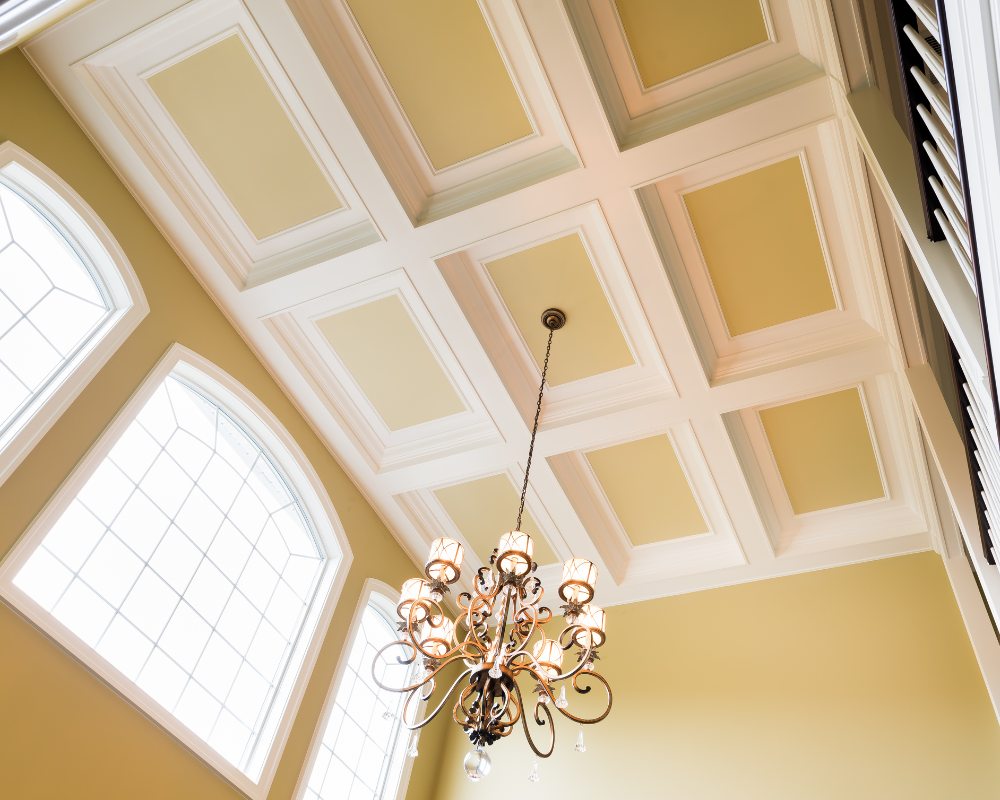
Gypsum ceiling tiles have become increasingly popular in recent years due to their versatility and style appeal. These tiles are made from a mineral known as gypsum, which is renowned for its fire-resistant properties, making it an ideal choice for both residential and commercial spaces. What’s more, gypsum ceiling tiles are lightweight, easy to install, and offer excellent sound absorption qualities, making them perfect for creating a quiet and serene environment.
One of the most compelling aspects of gypsum ceiling tiles is the wide range of designs and textures available. From sleek modern styles to intricate traditional patterns, these tiles can elevate any space. Additionally, gypsum ceiling tiles are environmentally friendly as they can be recycled after use, reducing waste and promoting sustainability. This sustainable aspect makes them an attractive option for eco-conscious consumers looking to enhance their living or working environments without compromising on environmental responsibility.
Material: Made from gypsum, a natural mineral.
Features: Fire-resistant, lightweight, and versatile type of tile in design.
Applications: Suitable for residential use and commercial spaces, providing fire safety and a classic elegant look.
Wooden Ceiling Tiles
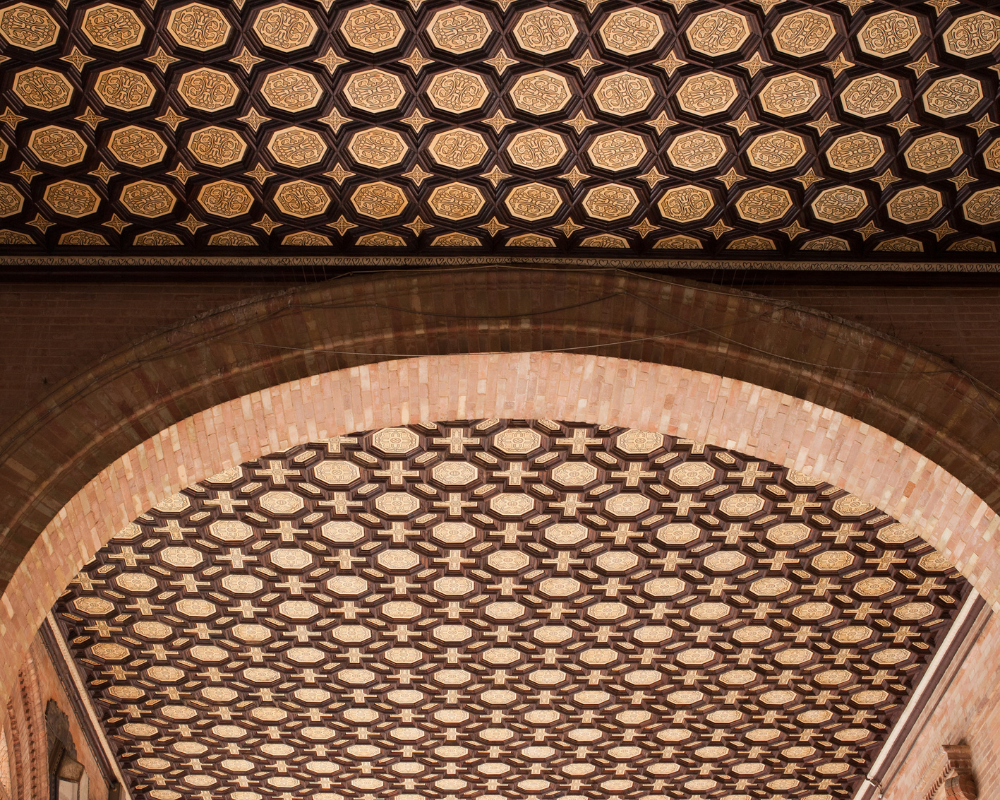
Wooden ceiling tiles offer a unique warmth and character to any interior space. These tiles come in various styles, from traditional to modern, providing endless design possibilities for both residential and commercial applications. The use of sustainable materials in wooden ceiling tiles also aligns with the growing demand for environmentally friendly building products, appealing to eco-conscious consumers.
The versatility of wooden ceiling tiles extends beyond their visual appeal, as they also possess excellent acoustical properties that contribute to sound absorption and noise reduction. The durability of wood makes it a practical choice for ceiling installations, ensuring long-term performance and minimal maintenance. With the ability to be easily customized through staining or painting, wooden ceiling tiles empower designers and homeowners to create truly personalized spaces that reflect their individual style preferences.
Incorporating wooden ceiling tiles into interior design schemes opens up opportunities for creating inviting and visually striking environments. From enhancing rustic charm in a farmhouse kitchen to introducing sleek sophistication in a contemporary office setting, these versatile tiles bring an organic charm that elevates the overall ambiance of any space. Whether it’s using reclaimed wood for a vintage look or opting for sleek hardwood for a modern touch, wooden ceiling tiles offer endless potential for capturing attention and inspiring awe within architectural settings.
Material: Natural wood or engineered wood fiber products.
Features: Warm and stylish look with visual appeal, and natural insulation properties.
Applications: Often used in residential projects, restaurants, and spaces where a warm ambiance is desired.
PVC Ceiling Tiles

PVC ceiling tiles have revolutionized interior décor by offering a versatile and cost-effective solution for homeowners and designers. These tiles come in an array of styles, from traditional to contemporary, allowing for endless customization options to suit any space. Their lightweight nature makes installation a breeze, saving both time and labor costs.
One fascinating aspect of PVC ceiling tiles is their moisture resistance, making them perfect for use in high-humidity areas such as bathrooms or kitchens. Their ability to resist mold and mildew not only adds an extra layer of protection but also ensures longevity and low maintenance. Furthermore, PVC ceiling tiles are eco-friendly as they can be recycled after use, contributing to sustainable design practices.
Material: Polyvinyl chloride (PVC)
Features: Water-resistant, easy to clean, and cost-effective.
Applications: Commonly found in home improvement bathrooms, kitchens, and areas prone to moisture.
Fiberglass Ceiling Tiles
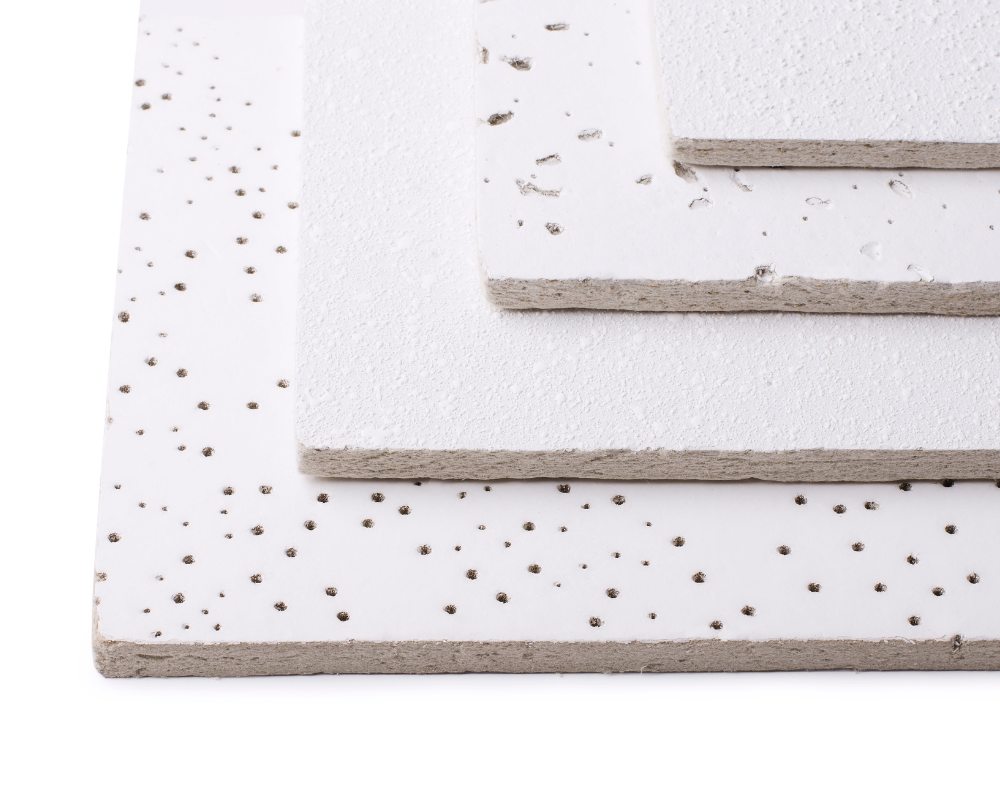
Fiberglass ceiling tiles are a versatile and durable type of ceiling tile that offers numerous benefits to commercial and residential spaces. These tiles are known for their ability to enhance acoustics by absorbing sound, making them an ideal choice for busy office environments or bustling restaurants. Additionally, fiberglass ceiling tiles are resistant to mold, mildew, and sagging, making them a low-maintenance option for spaces that require regular cleaning.
One of the key advantages of fiberglass ceiling tiles is their customizable nature, allowing for a wide range of designs and finishes. Whether you prefer a sleek and modern look or a traditional style, fiberglass ceiling tiles can be tailored to suit various interior styles. These tiles are lightweight and easy to install, reducing labor costs and minimizing disruption during the installation process. With their durability and design flexibility, fiberglass ceiling tiles offer an attractive solution for creating visually appealing and functional spaces.
Material: Consists of fiberglass and resin.
Features: Lightweight, mould-resistant, and a good acoustical tile for sound absorption.
Applications: Suitable good choice for areas where moisture and humid conditions are a concern, such as basements.
Cork Ceiling Tiles
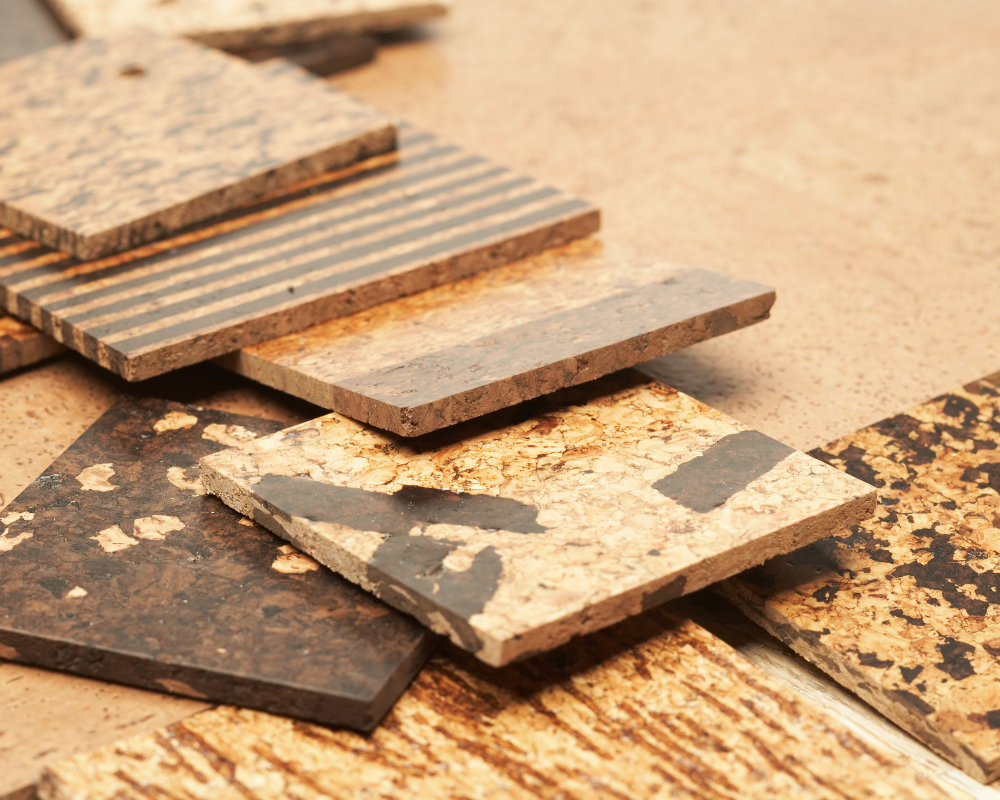
Cork ceiling tiles are a unique and eco-friendly type of ceiling tile that brings a touch of warmth and natural beauty to any space. These tiles are made from the bark of the cork oak tree, which is harvested without harming the tree, making them a sustainable choice for environmentally conscious consumers. The natural texture and color variations of cork tiles add visual interest to ceilings while also providing sound insulation and thermal benefits.
One of the most intriguing aspects of cork ceiling tiles is their versatility in design. From traditional patterns to modern geometric shapes, these tiles can be used to create stunning visual effects that complement any interior style. Additionally, the lightweight nature of cork makes it easy to install and maintain, making it an attractive option for both residential and commercial spaces.
Furthermore, beyond their visual appeal, cork ceiling tiles also offer practical benefits such as being hypoallergenic and resistant to mold and mildew. This makes them a valuable choice for spaces where air quality is a concern or where moisture levels may fluctuate. Overall, choosing cork ceiling tiles not only adds an elegant touch to a room’s design but also demonstrates a commitment to sustainability and environmental responsibility.
Material: Made from natural cork.
Features: Renewable, eco-friendly, and the best option to provide thermal insulation.
Applications: Eco-conscious designs, soundproofing acoustic tiles, and spaces with a natural aesthetic.
Acoustic Ceilings Tile
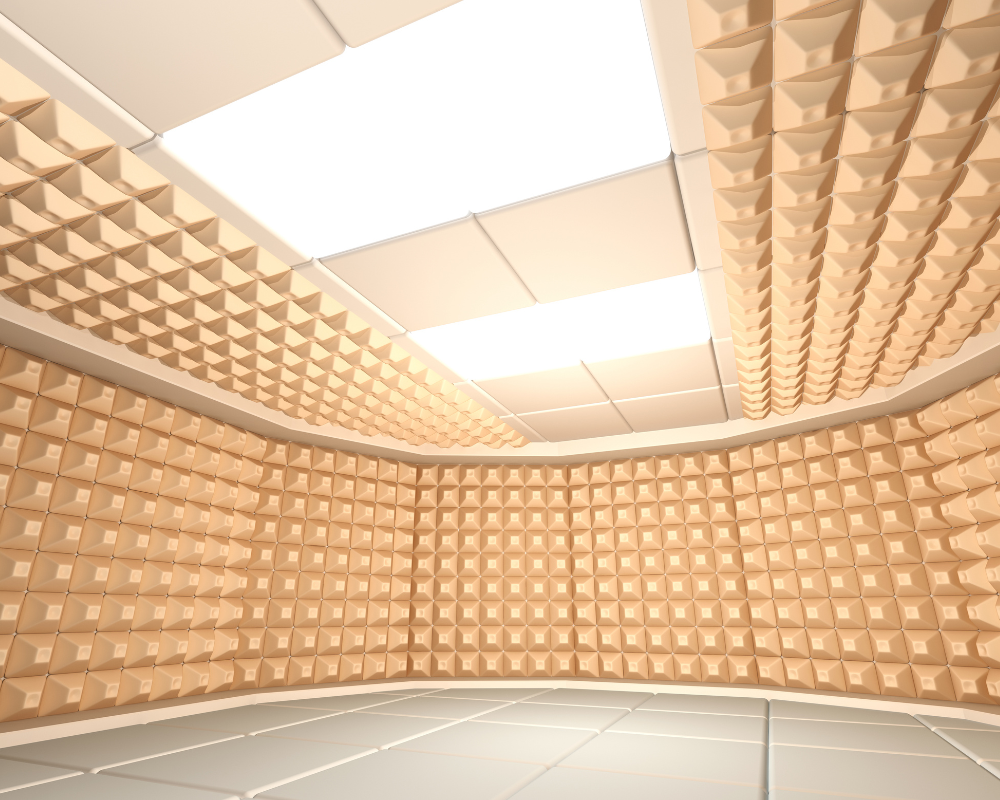
When it comes to acoustic ceiling tiles, the type and material can make a huge difference in the overall style and functionality of a space. One noteworthy type is mineral fiber ceiling tiles, which are known for their superior sound absorption properties. These tiles are especially effective in reducing noise levels, making them an ideal choice for offices, classrooms, and healthcare facilities where noise control is crucial.
Another popular type of acoustic ceiling tile is fiberglass. Fiberglass ceiling tiles offer excellent sound absorption qualities while boasting a lightweight and easy-to-install design. They come in various styles and designs, adding an element of visual appeal to any room while simultaneously improving acoustics. With both mineral fiber and fiberglass options available, choosing the right acoustic ceiling tile can greatly enhance the atmosphere of any setting while providing much-needed sound control.
Material: Various materials and brands of acoustic tile, including mineral fiber, fiberglass, or foam.
Features: Designed for optimal sound absorption and noise pollution reduction.
Applications: Ideal for theatres, auditoriums, music rooms, and open space like an office to enhance acoustics.
Conclusion
Ceiling tiles are more than just functional elements; they contribute significantly to the overall atmosphere and functionality of a space. The diverse range of materials and designs available make it possible to find the perfect ceiling system and tile for any application. Whether you prioritize style, acoustics, or durability, the right ceiling tile can transform a room into a harmonious and inviting environment. Consider your specific needs and preferences when choosing ceiling tiles, and enjoy the benefits of a well-designed and functional ceiling in your space.


